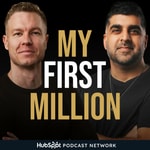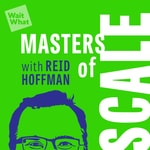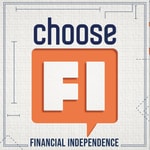BJKS Podcast – Details, episodes & analysis
Podcast details
Technical and general information from the podcast's RSS feed.

BJKS Podcast
Benjamin James Kuper-Smith
Frequency: 1 episode/15d. Total Eps: 115

A podcast about neuroscience, psychology, and anything vaguely related. Long-form interviews with people whose work I find interesting.
Recent rankings
Latest chart positions across Apple Podcasts and Spotify rankings.
Apple Podcasts
🇨🇦 Canada - socialSciences
25/07/2025#97🇨🇦 Canada - socialSciences
24/07/2025#84🇨🇦 Canada - socialSciences
23/07/2025#77🇨🇦 Canada - socialSciences
22/07/2025#60🇨🇦 Canada - socialSciences
21/07/2025#36🇨🇦 Canada - socialSciences
27/06/2025#92🇨🇦 Canada - socialSciences
26/06/2025#76🇨🇦 Canada - socialSciences
25/06/2025#66🇨🇦 Canada - socialSciences
24/06/2025#44🇫🇷 France - socialSciences
22/06/2025#83
Spotify
No recent rankings available
Shared links between episodes and podcasts
Links found in episode descriptions and other podcasts that share them.
See all- http://opinionsciencepodcast.com/
481 shares
- https://openai.com/blog/chatgpt/
204 shares
- https://tim.blog/podcast/
185 shares
RSS feed quality and score
Technical evaluation of the podcast's RSS feed quality and structure.
See allScore global : 42%
Publication history
Monthly episode publishing history over the past years.
100. Tom Chivers: Thomas Bayes, Bayesian statistics, and science journalism
vendredi 16 août 2024 • Duration 01:19:46
Tom Chivers is a journalist who writes a lot about science and applied statistics. We talk about his new book on Bayesian statistics, the biography of Thomas Bayes, the history of probability theory, how Bayes can help with the replication crisis, how Tom became a journalist, and much more.
BJKS Podcast is a podcast about neuroscience, psychology, and anything vaguely related, hosted by Benjamin James Kuper-Smith.
Support the show: https://geni.us/bjks-patreon
Timestamps
0:00:00: Tom's book about Bayes & Bayesian statistics relates to many of my previous episodes and much of my own research
0:03:12: A brief biography of Thomas Bayes (about whom very little is known)
0:11:00: The history of probability theory
0:36:23: Bayesian songs
0:43:17: Bayes & the replication crisis
0:57:27: How Tom got into science journalism
1:08:32: A book or paper more people should read
1:10:05: Something Tom wishes he'd learnt sooner
1:14:36: Advice for PhD students/postdocs/people in a transition period
Podcast links
- Website: https://geni.us/bjks-pod
- Twitter: https://geni.us/bjks-pod-twt
Tom's links
- Website: https://geni.us/chivers-web
- Twitter: https://geni.us/chivers-twt
- Podcast: https://geni.us/chivers-pod
Ben's links
- Website: https://geni.us/bjks-web
- Google Scholar: https://geni.us/bjks-scholar
- Twitter: https://geni.us/bjks-twt
References and links
Episode with Stuart Ritchie: https://geni.us/bjks-ritchie
Scott Alexander: https://www.astralcodexten.com/
Bayes (1731). Divine benevolence, or an attempt to prove that the principal end of the divine providence and government is the happiness of his creatures. Being an answer to a pamphlet entitled Divine Rectitude or an inquiry concerning the moral perfections of the deity with a refutation of the notions therein advanced concerning beauty and order, the reason of punishment and the necessity of a state of trial antecedent to perfect happiness.
Bayes (1763). An essay towards solving a problem in the doctrine of chances. Philosophical transactions of the Royal Society of London.
Bellhouse (2004). The Reverend Thomas Bayes, FRS: a biography to celebrate the tercentenary of his birth. Project Euclid.
Bem (2011). Feeling the future: experimental evidence for anomalous retroactive influences on cognition and affect. Journal of personality and social psychology.
Chivers (2024). Everything is Predictable: How Bayesian Statistics Explain Our World.
Chivers & Chivers (2021). How to read numbers: A guide to statistics in the news (and knowing when to trust them).
Chivers (2019). The Rationalist's Guide to the Galaxy: Superintelligent AI and the Geeks Who Are Trying to Save Humanity's Future.
Clarke [not Black, as Tom said] (2020). Piranesi.
Goldacre (2009). Bad science.
Goldacre (2014). Bad pharma: how drug companies mislead doctors and harm patients.
Simmons, Nelson & Simonsohn (2011). False-positive psychology: Undisclosed flexibility in data collection and analysis allows presenting anything as significant. Psychological Science.
99. Laura Luebbert: gget, hunting viruses, and questionable honeybee dances
vendredi 2 août 2024 • Duration 01:51:48
Laura Luebbert just finished her PhD in computational biology and will soon be a postdoc with Pardis Sabeti, to hunt some viruses. We talk about how she got into biology, how she created a widely-used software project (gget) with no prior coding experience, her recent reports when she discovered questionable data in key papers about honeybee dances, and much more.
BJKS Podcast is a podcast about neuroscience, psychology, and anything vaguely related, hosted by Benjamin James Kuper-Smith.
Support the show: https://geni.us/bjks-patreon
Timestamps
0:00:00: Why Laura studied biology in Leiden/the Netherlands (and the importance of early scientific training)
0:13:41: How Laura ended up doing a PhD at Caltech with Lior Pachter (and how to choose one project if you're interested in many things)
0:22:00: gget: Developing and maintaining a software tool with no prior programming experience
0:54:07: Laura's future postdoc (with Pardis Sabeti): global virus-hunter
0:59:34: Finding and reporting questionable data in published papers about honeybee dances
1:36:43: A book or paper more people should read
1:38:55: Something Laura wishes she'd learnt sooner
1:40:38: Advice for PhD students/postdocs
1:44:02: Bonus: should I learn Catalan?
Podcast links
- Website: https://geni.us/bjks-pod
- Twitter: https://geni.us/bjks-pod-twt
Laura's links
- Website: https://geni.us/luebbert-web
- Google Scholar: https://geni.us/luebbert-scholar
- Twitter: https://geni.us/luebbert-twt
Ben's links
- Website: https://geni.us/bjks-web
- Google Scholar: https://geni.us/bjks-scholar
- Twitter: https://geni.us/bjks-twt
References and links
Episode with Jessica Polka: https://geni.us/bjks-polka
Episode with Elisabeth Bik: https://geni.us/bjks-bik
Episode with Joe Hilgard: https://geni.us/bjks-hilgard
Prototype fund Germany: https://prototypefund.de/en/
PubPeer: https://pubpeer.com/
Aaronovitch (2014-). Rivers of London series.
Frisch (1927). Aus dem Leben der Bienen.
Luebbert, Sullivan, Carilli, Hjörleifsson, Winnett, Chari & Pachter (2023). Efficient and accurate detection of viral sequences at single-cell resolution reveals putative novel viruses perturbing host gene expression. bioRxiv.
Luebbert & Pachter (2023). Efficient querying of genomic reference databases with gget. Bioinformatics.
Luebbert & Pachter (2024). The miscalibration of the honeybee odometer. arXiv.
https://liorpachter.wordpress.com/2024/07/02/the-journal-of-scientific-integrity/
90. Brian Boyd: The life & works of Vladimir Nabokov, Lolita, and writing biographies
vendredi 19 janvier 2024 • Duration 01:40:38
Brian Boyd is a Distinguished Professor in English and Drama at the University of Auckland. We talk mainly about Vladimir Nabokov: Brian wrote the defining biography on Nabokov (in addition to books on more specific aspects about Nabokov), so we discuss Nabokov's life & work, Brian's approachh to writing biographies, with some hints of the new biography Brian is writing about Karl Popper.
BJKS Podcast is a podcast about neuroscience, psychology, and anything vaguely related, hosted by Benjamin James Kuper-Smith.
Support the show: https://geni.us/bjks-patreon
Timestamps
0:00:00: Why this is a special episode for me
0:07:02: Nabokov's family & childhood
0:15:54: The Russian Revolution, starting in 1917
0:19:52: Nabokov's study years in Cambridge and emigre years in Berlin in the 1920s and 30s
0:30:19: Nabokov's early American years: teaching and butterflies
0:35:56: Nabokov's Russian vs English works, and the problem of translations
0:41:48: Lolita
0:50:13: Pale Fire
1:02:46: Nabokov's writing process
1:07:26: Nabokov's reception
1:10:00: Writing Nabokov's biography: how it started, meeting Nabokov's family, researching and writing, and the responsibility of writing the defining work on someone
1:28:26: Which Nabokov book should new readers read first?
1:30:58: A book or paper more people should read
1:35:03: Something Brian wishes he'd learnt sooner
1:38:47: Advice for PhD students/postdocs
Podcast links
- Website: https://geni.us/bjks-pod
- Twitter: https://geni.us/bjks-pod-twt
Brian's links
- Website: https://geni.us/boyd-web
Ben's links
- Website: https://geni.us/bjks-web
- Google Scholar: https://geni.us/bjks-scholar
- Twitter: https://geni.us/bjks-twt
References and links
The estate Nabokov inherent and immediately lost in th revolution: https://en.wikipedia.org/wiki/Rozhdestveno_Memorial_Estate
Ada online, Brian's line-by-line annotations to Nabokov's Ada: https://www.ada.auckland.ac.nz/
Boyd (1985/2001). Nabokov's Ada: The Place of Consciousness.
Boyd (1990). Vladimir Nabokov: The Russian Years.
Boyd (1991). Vladimir Nabokov: The American Years.
Boyd & Pyle (eds) (2000). Nabokov’s Butterflies .
Boyd (2001). Nabokov's Pale Fire: The Magic of Artistic Discovery.
Grass (1959). Die Blechtrommel.
James (1897). What Maisie Knew.
Machado de Assis (1882). The Posthumous Memoirs of Brás Cubas. [The 2 new translations are by Thomson-DeVeaux (Penguin Classics), and by Jull Costa & Patterson (Liveright)]
Nabokov (1929). The (Luzhin) Defense.
Nabokov (1936). Invitation to a Beheading.
Nabokov (1947). Bend Sinister.
Nabokov (1955). Lolita.
Nabokov (1957). Pnin.
Nabokov (1962). Pale Fire.
Nabokov (1967). Speak, Memory.
Nabokov (1969). Ada or Ardor.
Tarnowsky (1908). Les femmes homicides. [Nabokov's great-aunt; see also: Huff-Corzine & Toohy (2023). The life and scholarship of Pauline Tarnowsky: Criminology's mother. Journal of Criminal Justice]
Vila, Bell, Macniven, Goldman-Huertas, Ree, Marshall, ... & Pierce (2011). Phylogeny and palaeoecology of Polyommatus blue butterflies show Beringia was a climate-regulated gateway to the New World. Proceedings of the Royal Society B: Biological Sciences.
89. Camillo Padoa-Schioppa: Value in the brain, orbitofrontal cortex, and causality in neuroscience
samedi 13 janvier 2024 • Duration 01:52:19
Camillo Padoa-Schioppa is a Professor of Neuroscience at the Washington University School of Medicine in St. Louis. In this conversation, we talk about Camillo's work on economic values in the brain, whether it is causally involved in choice, Camillo's career, working with different species, and much more.
BJKS Podcast is a podcast about neuroscience, psychology, and anything vaguely related, hosted by Benjamin James Kuper-Smith.
Support the show: https://geni.us/bjks-patreon
Timestamps
0:00:00: The historic background of economic value
0:12:31: How Camillo became a neuroeconomist
0:38:50: What does neuroscience add to our understanding of behaviour?
0:47:52: Value in the brain / discussing Camillo's 2006 Nature paper
1:05:47: Does the brain even need to compute value?
1:11:59: Causality in neuroscience / discussing Camillo's 2020 Nature paper
1:27:19: Trivial decisions
1:31:26: Is it wise to do neuroscience in humans and in animals, or should I focus on one approach?
1:40:15: A book or paper more people should read
1:43:19: Something Camillo wishes he'd learnt sooner
1:45:53: Advice for PhD students/postdocs
Podcast links
- Website: https://geni.us/bjks-pod
- Twitter: https://geni.us/bjks-pod-twt
Camillo's links
- Website: https://geni.us/padoa-schioppa-web
- Google Scholar: https://geni.us/padoa-schioppa-scholar
- Twitter: https://geni.us/padoa-schioppa-twt
Ben's links
- Website: https://geni.us/bjks-web
- Google Scholar: https://geni.us/bjks-scholar
- Twitter: https://geni.us/bjks-twt
References
Ballesta ... & Padoa-Schioppa (2020). Values encoded in orbitofrontal cortex are causally related to economic choices. Nature.
Bentham (1780). An introduction to the principles of morals and legislation.
Gigerenzer & Gaissmaier (2011). Heuristic decision making. Annual review of psychology.
Hayden & Niv (2021). The case against economic values in the orbitofrontal cortex (or anywhere else in the brain). Behavioral Neuroscience.
Homer. Iliad.
Homer. Odyssey.
Padoa-Schioppa (2009). Range-adapting representation of economic value in the orbitofrontal cortex. Journal of Neuroscience.
Padoa-Schioppa (2011). Neurobiology of economic choice: a good-based model. Annual review of neuroscience.
Padoa-Schioppa & Assad (2006). Neurons in the orbitofrontal cortex encode economic value. Nature.
Padoa-Schioppa & Conen (2017). Orbitofrontal cortex: a neural circuit for economic decisions. Neuron.
Padoa-Schioppa ... & Visalberghi (2006). Multi-stage mental process for economic choice in capuchins. Cognition.
Padoa-Schioppa, Li & Bizzi (2002). Neuronal correlates of kinematics-to-dynamics transformation in the supplementary motor area. Neuron.
Smith (1759). The theory of moral sentiments.
Salzman ... & Newsome (1990). Cortical microstimulation influences perceptual judgements of motion direction. Nature.
Salzman ... & Newsome (1992). Microstimulation in visual area MT: effects on direction discrimination performance. Journal of Neuroscience.
Visalberghi & Trinca (1989). Tool use in capuchin monkeys: Distinguishing between performing and understanding. Primates.
Episode w/ Smaldino: https://geni.us/bjks-smaldino_2
88. Juliana Schroeder: Talking to strangers, undersociality, and replicable field studies
vendredi 5 janvier 2024 • Duration 01:02:24
Juliana Schroder is a professor at the UC Berkeley Haas School of Business. In this conversation, we talk about her research in which she asks people to talk to strangers, and how this experience is usually a lot more pleasant than people expect. We talk about how the research came to be, what they found, how culture and norms affect the results, how to create robust and replicable field studies, and much more.
BJKS Podcast is a podcast about neuroscience, psychology, and anything vaguely related, hosted by Benjamin James Kuper-Smith.
Support the show: https://geni.us/bjks-patreon
Timestamps
00:00: The origin of Juliana's studies on talking to strangers
02:15: Why don't people talk to strangers (during commutes)?
05:46: What happens when strangers are forced to talk to each other?
08:47: How to start a conversation
13:31: Cultural differences in talking to strangers
31:19: How to create robust and replicable field studies
48:04: What's next for this line of research?
54:14: A book or paper more people should read
55:26: Something Juliana wishes she'd learnt sooner
57:13: Advice for PhD students/postdocs
Podcast links
- Website: https://geni.us/bjks-pod
- Twitter: https://geni.us/bjks-pod-twt
Juliana's links
- Website: https://geni.us/schroeder-web
- Google Scholar: https://geni.us/schroeder-scholar
- Twitter: https://geni.us/schroeder-twt
Ben's links
- Website: https://geni.us/bjks-web
- Google Scholar: https://geni.us/bjks-scholar
- Twitter: https://geni.us/bjks-twt
References
Boothby, Cooney, Sandstrom & Clark (2018). The liking gap in conversations: Do people like us more than we think? Psychological Science.
Epley (2015). Mindwise: Why we misunderstand what others think, believe, feel, and want.
Epley, Kardas, Zhao, Atir & Schroeder (2022). Undersociality: Miscalibrated social cognition can inhibit social connection. Trends in Cognitive Sciences.
Epley & Schroeder (2014). Mistakenly seeking solitude. Journal of Experimental Psychology: General.
Kardas, Schroeder & O'Brien (2022). Keep talking: (Mis) understanding the hedonic trajectory of conversation. Journal of Personality and Social Psychology.
Roy (1997). The god of small things.
Sandstrom, Boothby & Cooney (2022). Talking to strangers: A week-long intervention reduces psychological barriers to social connection. Journal of Experimental Social Psychology.
Sandstrom & Boothby (2021). Why do people avoid talking to strangers? A mini meta-analysis of predicted fears and actual experiences talking to a stranger. Self and Identity.
Schroeder, Lyons & Epley (2022). Hello, stranger? Pleasant conversations are preceded by concerns about starting one. Journal of Experimental Psychology: General.
87. Rick Betzel: Network neuroscience, generative modeling, and collaborations
lundi 1 janvier 2024 • Duration 01:23:30
Rick Betzel is an Associate professor at India University Bloomington. We talk about his research on network neuroscience, how to find good collaborators, Rick's path to network neuroscience, and much more.
Support the show: https://geni.us/bjks-patreon
Timestamps
0:00:00: What's the purpose of connectomics if understanding a species' entire connectome (as in C elegans) doesn't allow us to fully understand its behaviour?
0:03:57: Rick's very very linear path to network neuroscience
0:19:41: Multi-scale brain networks
0:43:40: Collaborations (between people who collect data and people who analyse data)
0:52:33: The future of network neuroscience: generative modeling, network control, and edge-centric connectomics
1:13:15: A book or paper more people should read
1:15:55: Something Rick wishes he'd learnt sooner
1:18:01: Advice for PhD students/postdocs
Podcast links
- Website: https://geni.us/bjks-pod
- Twitter: https://geni.us/bjks-pod-twt
Rick's links
- Website: https://geni.us/betzel-web
- Google Scholar: https://geni.us/betzel-scholar
- Twitter: https://geni.us/betzel-twt
Ben's links
- Website: https://geni.us/bjks-web
- Google Scholar: https://geni.us/bjks-scholar
- Twitter: https://geni.us/bjks-twt
References
Akarca ... (2021). A generative network model of neurodevelopmental diversity in structural brain organization. Nat Comm.
Barabási (2003). Linked.
Barabási & Albert (1999). Emergence of scaling in random networks. Science.
Betzel (2022). Network neuroscience and the connectomics revolution. In Connectomic deep brain stimulation.
Betzel & Bassett (2017). Multi-scale brain networks. Neuroimage.
Betzel & Bassett (2017). Generative models for network neuroscience: prospects and promise. Journal of The Royal Society Interface.
Betzel ... (2012). Synchronization dynamics and evidence for a repertoire of network states in resting EEG. Front comp neuro.
Bullmore & Sporns (2009). Complex brain networks: graph theoretical analysis of structural and functional systems. Nat Rev Neuro.
Cook ... (2019). Whole-animal connectomes of both Caenorhabditis elegans sexes. Nature.
Feltner & Dapena (1986). Dynamics of the shoulder and elbow joints of the throwing arm during a baseball pitch. J Appl Biomech.
Lindsay (2021). Models of the mind.
Nieminen ... (2022). Multi-locus transcranial magnetic stimulation system for electronically targeted brain stimulation. Brain stimulation.
Oh ... (2014). A mesoscale connectome of the mouse brain. Nature.
Rubinov & Sporns (2010). Complex network measures of brain connectivity: uses and interpretations. Neuroimage.
Scheffer ... (2020). A connectome and analysis of the adult Drosophila central brain. Elife.
Sporns (2016). Networks of the Brain.
Van Den Heuvel & Sporns (2011). Rich-club organization of the human connectome. J Neuro.
Watts & Strogatz (1998). Collective dynamics of ‘small-world’networks. Nature.
White ... (1986). The structure of the nervous system of the nematode Caenorhabditis elegans. Philos Trans R Soc Lond B.
Winding ... (2023). The connectome of an insect brain. Science.
Yan ... (2017). Network control principles predict neuron function in the Caenorhabditis elegans connectome. Nature.
86. Elisabeth Bik: Reporting scientific misconduct, the arms race between fraud & fraud detection, and the microbiome of dolphins
vendredi 22 décembre 2023 • Duration 01:32:49
Elisabeth Bik is a science integrity consultant. In this conversation, we talk about her work on reporting scientific errors and misconduct, how one becomes a full-time scientific integrity consultant, her postdoc work on the microbiome of dolphins, reactions to her work (both positive and negative), how to deal with online abuse, the arms race between fraudsters and fraud detectors, and much more.
BJKS Podcast is a podcast about neuroscience, psychology, and anything vaguely related, hosted by Benjamin James Kuper-Smith.
Support the show: https://geni.us/bjks-patreon
Timestamps
0:00:00: How Elisabeth became a full-time science integrity consultant
0:04:45: The microbiome of dolphins
0:12:02: What should I do if I find errors or fraud in a paper?
0:28:58: Reactions to Elisabeth's work: awards, online abuse, and lots of silence from journals
0:52:23: Should you report misconduct if you're in a vulnerable position?
0:58:19: What problems are worth reporting?
1:05:51: How does one become a (full-time) research integrity consultant?
1:13:21: The arms race between people commiting fraud and people detecting fraud
1:22:49: A book or paper more people should read
1:25:26: Something Elisabeth wishes she'd learnt sooner
1:29:09: Advice for PhD students/postdocs
Podcast links
- Website: https://geni.us/bjks-pod
- Twitter: https://geni.us/bjks-pod-twt
Elisabeth's links
- Website: https://geni.us/bik-web
- Google Scholar: https://geni.us/bik-scholar
- Twitter: https://geni.us/bik-twt
Ben's links
- Website: https://geni.us/bjks-web
- Google Scholar: https://geni.us/bjks-scholar
- Twitter: https://geni.us/bjks-twt
References & links
PubPeer: https://pubpeer.com/
COPE: https://publicationethics.org/
John Maddox Prize: https://en.wikipedia.org/wiki/John_Maddox_Prize
Episode w/ Joe Hilgard: https://geni.us/bjks-hilgard
Bik, Casadevall & Fang (2016). The prevalence of inappropriate image duplication in biomedical research publications. MBio.
Bik, Costello, Switzer, Callahan, Holmes, Wells, ... & Relman (2016). Marine mammals harbor unique microbiotas shaped by and yet distinct from the sea. Nature Communications.
Brown & Heathers (2017). The GRIM test: A simple technique detects numerous anomalies in the reporting of results in psychology. Social Psychological and Personality Science.
Reich (2009): Plastic fantastic: How the Biggest Fraud in Physics Shook the Scientific
85. Peter Bandettini: The history, present, and future of fMRI
vendredi 15 décembre 2023 • Duration 01:23:44
Peter Bandettini is director of the fMRI core facility at the National Institute of Mental Health. In this episode, we talk about the history, present, and future of fMRI, alongside Peter's career.
Support the show: https://geni.us/bjks-patreon
Timestamps
0:00:00: How Peter got started working on fMRI in the early 1990s
0:05:48: What was possible in neuroimaging in the late 80s
0:18:44: Major advances in fMRI in the 1990s
0:26:39: History of structural MRI
0:29:02: Major advances in fMRI since 2000
0:40:11: The future of fMRI
0:58:19: What is Peter working on?
1:06:31: A book or paper more people should read
1:14:36: Something Peter wishes he'd learnt sooner
1:21:52: Advice for PhD students/postdocs
Podcast links
- Website: https://geni.us/bjks-pod
- Twitter: https://geni.us/bjks-pod-twt
Peter's links
- Website: https://geni.us/bandettini-web
- Google Scholar: https://geni.us/bandettini-scholar
Ben's links
- Website: https://geni.us/bjks-web
- Google Scholar: https://geni.us/bjks-scholar
References
This episode broke the character limit of show notes, couldn't include all references.
Bandettini ... (1992). Time course EPI of human brain function during task activation. Magnetic resonance in medicine.
Belliveau ... (1991). Functional mapping of the human visual cortex by magnetic resonance imaging. Science.
Biswal ... (1995). Functional connectivity in the motor cortex of resting human brain using echo‐planar MRI. Magnetic resonance in medicine.
Blamire ... (1992). Dynamic mapping of the human visual cortex by high-speed magnetic resonance imaging. PNAS.
Engel ... (1994). fMRI of human visual cortex. Nature.
Finn ... (2015). Functional connectome fingerprinting: identifying individuals using patterns of brain connectivity. Nat Neuro.
Gordon ... (2017). Precision functional mapping of individual human brains. Neuron.
Gordon ... (2023). A somato-cognitive action network alternates with effector regions in motor cortex. Nature.
Hasson ... (2004). Intersubject synchronization of cortical activity during natural vision. Science.
Huber ... (2017). High-resolution CBV-fMRI allows mapping of laminar activity and connectivity of cortical input and output in human M1. Neuron.
Huth ... (2012). A continuous semantic space describes the representation of thousands of object and action categories across the human brain. Neuron.
Kamitani ... (2005). Decoding the visual and subjective contents of the human brain. Nat Neuro.
Kwong ... (1992). Dynamic magnetic resonance imaging of human brain activity during primary sensory stimulation. PNAS.
Newbold ... (2020). Plasticity and spontaneous activity pulses in disused human brain circuits. Neuron.
Norman ... (2006). Beyond mind-reading: multi-voxel pattern analysis of fMRI data. TiCS.
Ogawa ... (1990). Brain magnetic resonance imaging with contrast dependent on blood oxygenation. PNAS.
Ogawa ... (2000). An approach to probe some neural systems interaction by functional MRI at neural time scale down to milliseconds. PNAS.
Sereno ... (1995). Borders of multiple visual areas in humans revealed by functional magnetic resonance imaging. Science.
Toi ... (2022). In vivo direct imaging of neuronal activity at high temporospatial resolution. Science.
84. Brian Nosek: Improving science, the past & future of the Center for Open Science, and failure in science
vendredi 8 décembre 2023 • Duration 01:02:09
Brian Nosek is a professor of psychology at the University of Virginia, and Co-founder and Executive Director of the Center for Open Science. In this conversation, we discuss the Center for Open Science, Brian's early interest in improving science, how COS got started, what Brian would like to do in the future, and how to figure out whether ideas are working.
BJKS Podcast is a podcast about neuroscience, psychology, and anything vaguely related, hosted by Benjamin James Kuper-Smith.
Support the show: https://geni.us/bjks-patreon
Timestamps
00:00: Brian's early interest in improving science
15:24: How the Center for Open Science got funded (by John and Laura Arnold)
26:08: How long is COS financed into the future?
29:01: What if COS isn't benefitting science anymore?
35:42: Is Brian a scientist or an entrepreneur?
40:58: The future of the Center for Open Science
51:13: A book or paper more people should read
54:42: Something Brian wishes he'd learnt sooner
58:53: Advice for PhD students/postdocs
Podcast links
- Website: https://geni.us/bjks-pod
- Twitter: https://geni.us/bjks-pod-twt
Brian's links
- Website: https://geni.us/nosek-web
- Google Scholar: https://geni.us/nosek-scholar
- Twitter: https://geni.us/nosek-twt
Ben's links
- Website: https://geni.us/bjks-web
- Google Scholar: https://geni.us/bjks-scholar
- Twitter: https://geni.us/bjks-twt
References & Links
Article about John Arnold: https://www.wired.com/2017/01/john-arnold-waging-war-on-bad-science/
Scientific virtues (including stupidity): https://slimemoldtimemold.com/2022/02/10/the-scientific-virtues/
Cohen (1994). The earth is round (p<. p05). American psychologist.
Greenwald (1975). Consequences of prejudice against the null hypothesis. Psychological bulletin.
Greenwald, McGhee & Schwartz (1998). Measuring individual differences in implicit cognition: the implicit association test. Journal of personality and social psychology.
Hardwicke & Ioannidis (2018). Mapping the universe of registered reports. Nature Human Behaviour.
Meehl (1967). Theory-testing in psychology and physics: A methodological paradox. Philosophy of science.
Nosek, Banaji & Greenwald (2002). Harvesting implicit group attitudes and beliefs from a demonstration web site. Group Dynamics: Theory, research, and practice.
Nosek & Bar-Anan (2012). Scientific utopia: I. Opening scientific communication. Psychological Inquiry.
Nosek, Spies & Motyl (2012). Scientific utopia: II. Restructuring incentives and practices to promote truth over publishability. Perspectives on Psychological Science.
Rosenthal (1979). The file drawer problem and tolerance for null results. Psychological bulletin.
Open Science Collaboration (2015). Estimating the reproducibility of psychological science. Science.
Schwartz (2008). The importance of stupidity in scientific research. Journal of Cell Science.
Uhlmann, Ebersole, Chartier, Errington, Kidwell, Lai, McCarthy, Riegelman, Silberzahn & Nosek (2019). Scientific utopia III: Crowdsourcing science. Perspectives on Psychological Science.
83. Rachel Bedder: Rumination, teaching without grades, and managing yourself as a PhD student
dimanche 3 décembre 2023 • Duration 01:36:05
Rachel Bedder is a postdoc with Yael Niv at Princeton. In this conversation, we talk about her research on rumination and repetitive negative thinking (in the context of a partially observable Markov decision process), her work as a curator, why she enjoys teaching without grades, how to manage yourself as a PhD student, and much more.
BJKS Podcast is a podcast about neuroscience, psychology, and anything vaguely related, hosted by Benjamin James Kuper-Smith.
Support the show: https://geni.us/bjks-patreon
Timestamps
0:00:00: Teaching maths in prison
0:06:40: Teaching without grades
0:15:42: Working as a full-time research assistant (after BSc) and dealing with lots of rejections
0:25:51: How Rachel ended up doing a postdoc with Yael Niv
0:32:08: Discussing Rachel's conference proceedings 'Modelling Rumination as a State-Inference Process' (featuring partially observable Markov decision processes)
0:56:49: Rachel's background in art and curation
1:10:58: How to not turn hobbies into a stressful thing you need to get done
1:14:46: A book or paper more people should read
1:16:47: Something Rachel wishes she'd learnt sooner
1:19:05: Advice for PhD students/postdocs, with a twist: 5 tips for managing yourself during a PhD
Podcast links
- Website: https://geni.us/bjks-pod
- Twitter: https://geni.us/bjks-pod-twt
Rachel's links
- Website: https://geni.us/bedder-web
- Google Scholar: https://geni.us/bedder-scholar
- Twitter: https://geni.us/bedder-twt
Ben's links
- Website: https://geni.us/bjks-web
- Google Scholar: https://geni.us/bjks-scholar
- Twitter: https://geni.us/bjks-twt
References and links
Episodes with Matthias Stangl and Toby Wise about postdoc jobs & fellowships:
https://geni.us/bjks-wise-postdoc
https://geni.us/bjks-postdoc-stangl
Episode with Paul Smaldino on modelling social behaviour, and with Eiko Fried on theories in psychology
https://geni.us/bjks-smaldino_2
https://geni.us/bjks-fried
POMDPs: https://en.wikipedia.org/wiki/Partially_observable_Markov_decision_process
Dear World Project: https://engagement.fil.ion.ucl.ac.uk/projects/dear-world-project/
5 tips for managing yourself during a PhD: https://www.rachelbedder.com/phdtips
Scientific virtues (including stupidity): https://slimemoldtimemold.com/2022/02/10/the-scientific-virtues/
Bedder, Pisupati & Niv (2023) Modelling Rumination as a State-Inference Process. https://doi.org/10.31234/osf.io/tfjqn
Burkeman (2021). Four thousand weeks: Time management for mortals.
McCullers (1940). The Heart is a Lonely Hunter.
Montague, Dolan, Friston & Dayan (2012). Computational psychiatry. Trends in cognitive sciences.









